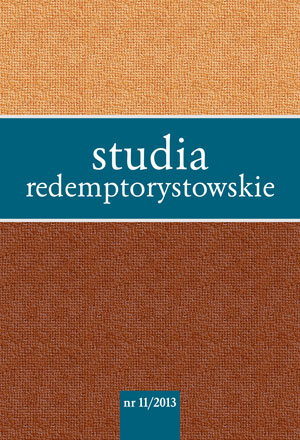Znaczenie informacji w codziennym życiu wczesnośredniowiecznych mnichów na podstawie reguły Benedykta z Nursji
The importance of information in the daily life of early monks under the Rule of Benedict of Nurcia
Author(s): Olga CyrekSubject(s): Christian Theology and Religion
Published by: Warszawska Prowincja Redemptorystów
Keywords: information; words; gestures; observation; monasticism; opinion; monastic rule
Summary/Abstract: The paper describes the basis of the Rule of Benedict of Nursia (d. 547) datascape environment present in the community of monks living in the monastery and the ways of acquiring information. The primary source of information for them was another man, especially a monk, and contact with the laity much they confine. Important information for them was verbal, which is transmitted by word and non-verbal information, transmitted gesture and posture. They used the word only in exceptional circumstances and with dignity. Also conveyed his command charged with words, but Cenobites were obliged to listen to him in silence. If you need anything, it’s more likely to be expressed by the movements of the body. Information plays an important role in the educational process, which is facilitated by the introduction of the discipline in the monastery. Abbots used the information for teaching and imparting knowledge, but the monks did not take an active role, but rather passively absorb everything supervisor told them. In exceptional cases, they can express their views, such as the common meeting. Monks depend primarily on the spiritual peace, hence they try to create the environment around them organized. Disinformation in them did not exist, because often they read the Rule and thus keep gaining knowledge about behavior. They knew so well their duties and rights and follow the top-down schedule.
Journal: Studia Redemptorystowskie
- Issue Year: 2013
- Issue No: 11
- Page Range: 145-171
- Page Count: 26
- Language: Polish

